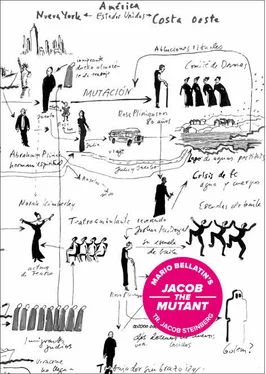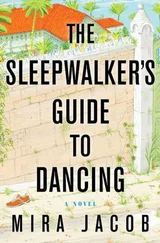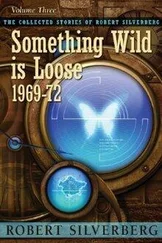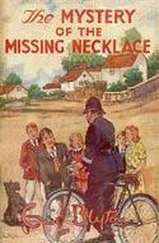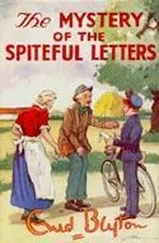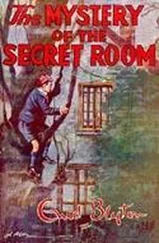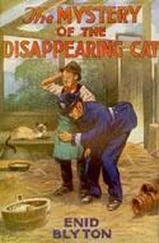Mario Bellatin - Jacob the Mutant
Здесь есть возможность читать онлайн «Mario Bellatin - Jacob the Mutant» весь текст электронной книги совершенно бесплатно (целиком полную версию без сокращений). В некоторых случаях можно слушать аудио, скачать через торрент в формате fb2 и присутствует краткое содержание. Год выпуска: 2015, Издательство: Phoneme Media, Жанр: Современная проза, на английском языке. Описание произведения, (предисловие) а так же отзывы посетителей доступны на портале библиотеки ЛибКат.
- Название:Jacob the Mutant
- Автор:
- Издательство:Phoneme Media
- Жанр:
- Год:2015
- ISBN:нет данных
- Рейтинг книги:3 / 5. Голосов: 1
-
Избранное:Добавить в избранное
- Отзывы:
-
Ваша оценка:
- 60
- 1
- 2
- 3
- 4
- 5
Jacob the Mutant: краткое содержание, описание и аннотация
Предлагаем к чтению аннотацию, описание, краткое содержание или предисловие (зависит от того, что написал сам автор книги «Jacob the Mutant»). Если вы не нашли необходимую информацию о книге — напишите в комментариях, мы постараемся отыскать её.
is a novella in a perpetual state of transformation — a story about a man named Jacob, an ersatz rabbi and owner of a roadside tavern. But when reality shifts, so does Jacob, mutating into another person entirely.
Jacob the Mutant — читать онлайн бесплатно полную книгу (весь текст) целиком
Ниже представлен текст книги, разбитый по страницам. Система сохранения места последней прочитанной страницы, позволяет с удобством читать онлайн бесплатно книгу «Jacob the Mutant», без необходимости каждый раз заново искать на чём Вы остановились. Поставьте закладку, и сможете в любой момент перейти на страницу, на которой закончили чтение.
Интервал:
Закладка:
For example, the new civil servants developed a habit, just like that, of interrupting the classes Jacob gave to the village children, asking questions that appeared to be out of place.
Curiously, they never made an allusion to the tavern or the classes that he gave; their interest seemed to lie solely in the Tiny Nocturnal Zoo that he kept as a sort of attraction.
The agents of the new order kept placing increasing obstacles and demands on its operation.
They primarily cited reasons of a sanitary nature.
One morning the inspectors appeared after classes, and as Jacob’s wife slept, they closed the establishment, giving its owner a pressing deadline to remove the animals.
Without the Tiny Nocturnal Zoo, it would be impossible for Jacob to continue with the routine that saw his wife spending her nights awake before a group of drunken men.
He wasn’t just not going to be able to manage the tavern but not able either to provide shelter and help to those fleeing the pogroms carried out in the neighboring country.
Jacob then found himself facing a dilemma:
What to do with the wild animals?
He knew that in the Sacred Texts no great reference was made to them.
Save for Noah and his redeeming ark, he didn’t know of the existence of a possible guide for divine precepts to follow, which could orient him on the matter.
As an initial measure, Jacob closed the whole tavern.
Not just the Tiny Nocturnal Zoo, as the authorities had ordered him to.
He retreated into his Torah studies, waiting for the moment when the agents of the new order would carry forth the final sentence: that is, what he had slowly been suspecting would occur to the members of his community at a relatively soon point in time.
Jacob continued to teach his pupils, to whom he had the habit of repeating, among other things, that any person who engaged with the Torah was capable of accepting the idea that he had the strength necessary to sustain the world on his own.
Of carrying upon himself each and every one of the objects of Creation, including, of course, animals.
Upon seeing the children’s anxious faces, Jacob would tell them to keep up with their daily tasks because all work would be noted and tallied, as corresponded, as is appropriate and fit to occur.
Jacob’s wife had accepted her job as manager of the tavern after a long night of theological debate with her husband as to whether or not such a position was acceptable.
It seems to me that on that occasion Jacob employed for the first time that idea that every tally would be tabulated as corresponds, as is appropriate and fit.
Jacob’s wife would often remove her wig in the presence of her husband and cry when Jacob tried to convince her that an obligation of that nature was not at odds with the laws.
His wife felt that it was.
Jacob’s wife wasn’t capable of explaining it with words, but she was certain that spending entire nights dealing with men who were becoming drunk while watching a group of caged animals could not be seen as good by divine eyes.
For Jacob’s wife there could be nothing divine in setting up the Tiny Nocturnal Zoo, whose real purpose was to hide the fact that a rabbi’s wife was managing a tavern, all the while this tavern acted as a front for an operation to save the many lives of those who found themselves in danger.
As his wife cried, Jacob repeated to her that, within the community, it was not possible that any member of the human species existed without also possessing a corresponding entity.
With that he hoped to express to her that the Torah had already accounted for the fact that she was to administer the tavern.
What’s more, he was trying to tell her that her mirror had already engaged in that activity since the beginning of time.
She (Jacob would say to her as he caressed her real hair), as a human being, was divided into parts, like stages, that at the same time were a reflection of other times in history.
The members of any community of believers were organized into parts of a single body.
In other words, Jacob seemed to want to tell his wife that she was not only his wife, but that she also represented a portion of a much more extensive body.
And not just that, Jacob informed her that this means of structure didn’t correspond only to mankind but was also found throughout the entire world, including animals.
All creatures, Jacob would repeat to his disconcerted wife before she would accept her post running the tavern, are members upon members, some positioned over others, organized into one sole body.
And these beings, which at the same time form stages, are like the Torah, because the Torah is made up entirely of members and joints, pirkin , also known as sections or segments, that are always found some positioned above others, organized all of them and continuously functioning as one sole structure.
Despite finding myself before the story of Jacob and his wife, the manager of a tavern, despite seeing the house and the tavern — with its Tiny Nocturnal Zoo — rise up scant few kilometers from the border, it never stopped seeming weird to me (a curious reader of the Joseph Roth texts rescued from the archives of some German publishing houses) that a situation of this nature could arise. This situation was precisely one in which a rabbi, at whose hands the members of his community found themselves, insisted on making his wife become the manager of a tavern and, additionally, take on the responsibility of displaying a group of caged wild animals.
Both Jacob and his wife endured that process for quite some time.
As you could guess, Jacob’s wife was not quickly convinced.
On more than one occasion Jacob appealed to the teachings of David, particularly the moment when David opened his eyes and said: How innumerous, Lord, are your works!
All of your works you created them with Great Wisdom…the Earth is full of your creatures (Psalms 104:24).
In the Torah, the celestial secrets are sealed and intangible— de’la yakhlin lehitdabaka , “they cannot be grasped”—Jacob kept telling his wife until one night, exhausted, she acquiesced, saying: It is true, I have understood it, it is God’s will that I be the manager of a tavern of lost men .
The wife gave her acceptance immediately after Jacob informed her that in the Torah the celestial matters, both revealed and unrevealed, are one and the same.
The world is always the same.
The world of today and the world to come.
And in the Torah every possible word from every time is present.
Nevertheless, it cannot come to be that someone should be able to see them, control them or even know them, in the same way that the sheikha who manages the order to which I pertain hinted to me at the existence of each one of the ninety-nine names of God.
Nobody can see the names of God — both Jacob the Mutant and the sheikha of my order said.
This is perhaps the reason for which it is written: Who can speak of the great works of the Lord? Who can sing His praises? (Psalms 106:2).
What happened next was terrible.
Very soon the agents of the new order carried out what they had warned of and entered the barn violently, shooting each of the caged animals dead.
In that era of social disorder, many Russian brethren came through the village and managed to cross all of Europe until many of them reached the ports of the Mediterranean or the North Sea in aims of fleeing as far as possible.
Following the first incursion of the agents of the new order, Jacob sought out the services of a good taxidermist.
Jacob checked with the members of his community and learned that a distant cousin of his who lived in a relatively distant village specialized in that activity.
Читать дальшеИнтервал:
Закладка:
Похожие книги на «Jacob the Mutant»
Представляем Вашему вниманию похожие книги на «Jacob the Mutant» списком для выбора. Мы отобрали схожую по названию и смыслу литературу в надежде предоставить читателям больше вариантов отыскать новые, интересные, ещё непрочитанные произведения.
Обсуждение, отзывы о книге «Jacob the Mutant» и просто собственные мнения читателей. Оставьте ваши комментарии, напишите, что Вы думаете о произведении, его смысле или главных героях. Укажите что конкретно понравилось, а что нет, и почему Вы так считаете.
